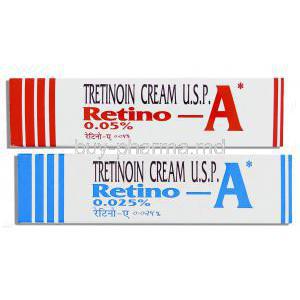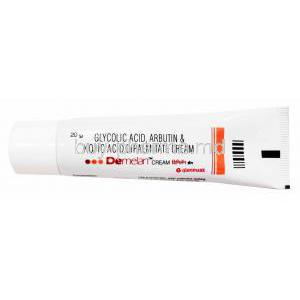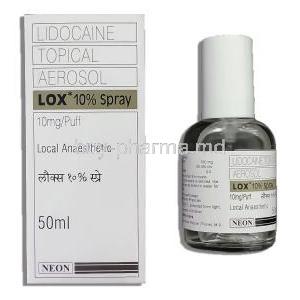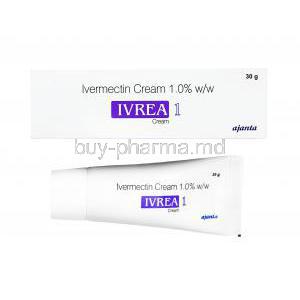Hydroquinone, Hydrocortisone Acetate, Tretinoin. Cream
- Introduction
- Composition and Mechanism of Action
- Uses and Indications
- Dosage and Administration
- Common Side Effects
- Serious Side Effects and Risks
- Contraindications and Warnings
- Drug Interactions and Precautions
- Special Considerations for Specific Populations
- Overdosage and Toxicity Risks
- Handling and Storage Guidelines
- Important Usage Precautions
Introduction
Composition and Mechanism of Action
Hydroquinone: Skin-Lightening Agent
Hydrocortisone Acetate: Anti-Inflammatory Properties
Tretinoin: Retinoid Mechanism
Synergistic Effects
Hydroquinone and retinol
Niacinamide and hydroquinone
Hydroquinone vs tretinoin
Tranexamic acid vs hydroquinone
Benzoquinone vs hydroquinone
Azelaic acid vs hydroquinone
Hydrocortisone vs hydrocortisone acetate
Tretinoin vs retinol
Tazarotene vs tretinoin
Adapalene vs tretinoin
Differin vs tretinoin
Uses and Indications
FDA-Approved Uses
Off-Label Uses
Dosage and Administration
Recommended Dosage for Different Skin Conditions
Application Guidelines and Best Practices
Frequency of Use and Duration of Treatment
Step-by-Step Guide on Proper Application
Importance of Sun Protection During Treatment
Common Side Effects
Tretinoin purge
Serious Side Effects and Risks
Contraindications and Warnings
Drug Interactions and Precautions
Potential Drug Interactions
Precautions to Avoid Adverse Reactions
Alternative to hydroquinone
Special Considerations for Specific Populations
Elderly Patients
Pregnant Women and Nursing Mothers
Pediatric Use
Overdosage and Toxicity Risks
Signs and Symptoms of Topical Overdose
Risks of Systemic Absorption with Excessive Use
Management of Accidental Ingestion or Excessive Application
Handling and Storage Guidelines
Proper Storage Conditions to Maintain Product Efficacy
Shelf Life and Expiration Considerations
Safe Handling to Prevent Contamination
Disposal Guidelines for Expired or Unused Products
Important Usage Precautions
Importance of Gradual Introduction to Avoid Irritation
Avoiding Exposure to Extreme Environmental Conditions
Proper Skincare Regimen to Complement Treatment
Regular Follow-Up with a Dermatologist for Monitoring
Hydroquinone, Hydrocortisone Acetate, Tretinoin. Cream FAQ
- What is Hydroquinone used for?
- How does Hydroquinone work?
- What are the potential side effects of Hydroquinone?
- Is Hydroquinone safe for long-term use?
- Can Hydroquinone be used during pregnancy or breastfeeding?
- Can Hydroquinone be used on all skin types?
- What is Tretinoin used for?
- How does Tretinoin work?
- What are the common side effects of Tretinoin?
- How should Tretinoin be applied?
- Can Tretinoin be used during pregnancy?
- How long does it take to see results from Tretinoin?
- What is Hydroquinone, Hydrocortisone Acetate, and Tretinoin Cream used for?
- What is the purpose of Hydrocortisone Acetate in this combination?
- What is a hydrocortisone acetate suppository used for?
- What is hydrocortisone mainly used for?
- What is the difference between hydrocortisone acetate and hydrocortisone?
- What is hydrocortisone acetic acid used for?
- What is hydrocortisone acetate good for?
- Who needs hydrocortisone?
- Is hydrocortisone safe to use daily?
- Is hydrocortisone acetate a strong steroid?
- What happens if you stop taking hydrocortisone?
- What diseases does hydrocortisone treat?
What is Hydroquinone used for?
Hydroquinone is commonly utilized to brighten patches of skin that have darkened due to conditions like age spots or freckles, as well as issues like melasma and post-inflammatory hyperpigmentation.
How does Hydroquinone work?
It works by inhibiting the function of the enzyme needed to produce melanin, the pigment, for skin coloration.
What are the potential side effects of Hydroquinone?
Skin reactions that may occur include discomforts such as irritation and dryness; in cases of use, the skin could exhibit ochronosis, presenting a darkened tone.
Is Hydroquinone safe for long-term use?
It is generally not recommended to use hydroquinone for a period of time due to risks. It's advisable to seek guidance and supervision of a dermatologist when using it.
Can Hydroquinone be used during pregnancy or breastfeeding?
Pregnant or breastfeeding individuals are typically advised to avoid using Hydroquinone due to the risks associated with it.
Can Hydroquinone be used on all skin types?
Yes
What is Tretinoin used for?
Tretinoin is often used to treat acne and enhance the appearance of lines and skin discoloration.
How does Tretinoin work?
Tretinoin helps speed up the shedding of skin cells to unclog pores and reduce acne development while also boosting collagen production to lessen the visibility of wrinkles.
What are the common side effects of Tretinoin?
During the phase referred to as "retinization," common reactions may include redness and dryness of the skin, along with peeling and increased sensitivity to sunlight.
How should Tretinoin be applied?
Before going to bed, carefully apply a layer of Tretinoin to your skin, making sure to avoid the areas around your eyes, mouth, and nose.
Can Tretinoin be used during pregnancy?
It's generally recommended to steer off using Tretinoin during breastfeeding as it could potentially harm the baby.
How long does it take to see results from Tretinoin?
It could take a week to months before you begin to see any changes from using Tretinoin treatment, and you might notice your acne getting worse temporarily before it starts to improve.
What is Hydroquinone, Hydrocortisone Acetate, and Tretinoin Cream used for?
It is mainly employed to address melasma and hyperpigmentation concerns along with instances of skin discoloration by leveraging skin brightening properties alongside inflammatory and cell regeneration effects.
What is the purpose of Hydrocortisone Acetate in this combination?
Hydrocortisone Acetate is a type of corticosteroid that helps to reduce inflammation and irritation while also lessening any side effects caused by the components present in the mixture.
What is a hydrocortisone acetate suppository used for?
This medicine is commonly employed to address hemorrhoids and alleviate itching and swelling in the rectum and anus area, along with its usage in combination with drugs to manage intestinal issues like ulcerative colitis affecting the rectum and various inflammatory conditions in the rectal or anal region.
What is hydrocortisone mainly used for?
Hydrocortisone is a type of steroid medication known as a corticosteroid that functions by soothing your body's response to alleviate pain and reduce itching and inflammation swelling. It can also serve as a hormone substitute, for individuals lacking an amount of the bodys natural stress hormone cortisol.
What is the difference between hydrocortisone acetate and hydrocortisone?
Hydrocortisone acetate is known for its stability. Reduced vulnerability to metabolism compared to hydrocortisone, which enables an amount of the drug to be absorbed and enter the bloodstream systemically, making it a popular choice for oral intake over hydrocortisone.
What is hydrocortisone acetic acid used for?
This medication mix is commonly employed to address infections in the ear, such as those encountered in swimmers' ears.
What is hydrocortisone acetate good for?
Hydrocortisone cream is applied to reduce redness and itching caused by skin problems, like rashes or eczema, as it contains corticosteroids that act like hormones in the body.
Who needs hydrocortisone?
Hydrocortisone tablets are a type of steroid medicine that reduces inflammation and helps regulate a system or supplements the cortisol hormone responsible for managing stress in your body. They are used to address health issues such as asthma, allergies, arthritis, and inflammatory bowel diseases.
Is hydrocortisone safe to use daily?
Taking hydrocortisone continuously for a period may result in the medication entering your bloodstream inadvertently and potentially leading to severe complications, like issues with the adrenal glands or high blood sugar levels (hyperglycemia), as well as potential vision problems.
Is hydrocortisone acetate a strong steroid?
Mild
What happens if you stop taking hydrocortisone?
If you abruptly discontinue medication intake without reduction, your body might lack the necessary natural steroids to operate properly. This could lead to fatigue, weakness, decreased appetite, weight loss, stomach discomfort, nausea, drowsiness, and aching joints and muscles.
What diseases does hydrocortisone treat?
It is commonly employed to address health issues, like swelling due to inflammation or severe allergies, irregularities, arthritis, blood disorders affecting the bone marrow, eye or vision impairments, respiratory complications such as asthma, lupus, skin ailments, and ulcerative colitis.



















